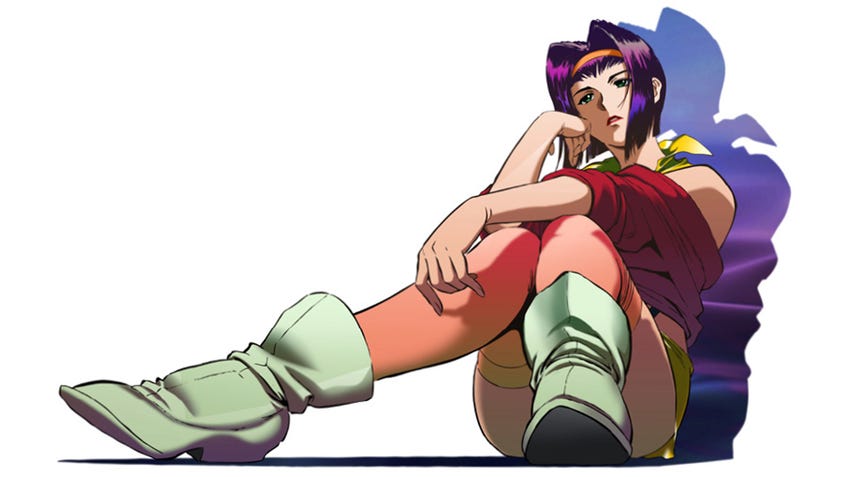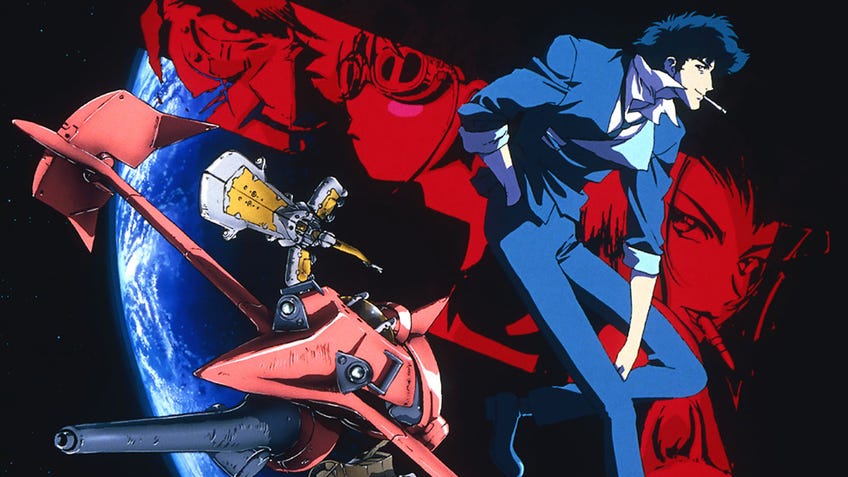From Cowboy Bebop to Dark Souls, why licensed RPGs need to do better in 2022
Big names, small ideas.
When devising this year’s list of our most anticipated roleplaying game releases, we had to make an active effort to not fill the entire thing with licensed RPGs. With Avatar Legends set to arrive sometime this summer - after the most successful Kickstarter campaign to date for a TRPG - the long awaited Cowboy Bebop RPG on the way and the newly revealed Dark Souls roleplaying game, there’s a lot to look forward to in the coming 12 months.
But despite all the excitement, there’s a lot of trepidation mixed in as well. There might be several franchises that I absolutely love getting the roleplaying game treatment - Avatar and Blade Runner, to name just a couple - but just because the original licence was great, doesn’t necessarily mean that the adaption will be. Several of these intellectual properties have already experienced the darker side of adaptation - that notoriously bad live-action Avatar film and cancelled Cowboy Bebop show both spring to mind - and nobody wants to see that happen again. (Though in today’s climate of endless remakes and spin-offs, it’s bound to.)
Last year, I managed to get my hands on the quickstart for Avatar Legends - the tabletop RPG based on the beloved animated series that I watched for the first time in 2021 - and have had a fantastic time with the game so far. Avatar Legends very much feels like an RPG that understands what made the original series so good, translating that into a playable experience that gives game masters and players the tools they need to make their own episodic stories set within the same universe. Granted, the full version of the rulebook is yet to be released, but I have pretty high hopes.
On the other hand, I’m pretty damn nervous about all the other licensed RPGs that are set to make an appearance in 2022. I’m not a fan of Cowboy Bebop myself (cue horrified gasps), but editor-in-chief Matt Jarvis is and he’s already mentioned his doubts surrounding the decision to enable players to become members of the original’s cast of iconic characters. Though lead designer Michele Paroli’s comments that the RPG will attempt to “translate the jazz part [of the series] into the core system” sound interesting, having players be able to control characters from the series feels like an alarmingly safe move.
Slapping a fresh coat of paint onto an existing roleplaying system is simply not enough.
Herein lies the biggest problem with licensed roleplaying games: it’s too tempting to play it safe. When you have an already incredibly attractive element in place - a recognisable name - why do more to win players over? Roleplaying games that lean too much upon the setting, characters and imagery of a licence risk doing the original property a disservice. Slapping a fresh coat of paint onto an existing roleplaying system is simply not enough to make for a good licensed RPG. I’ve criticised licensed TRPGs for using imperfect systems in the past, because they’ve not been altered enough - or they’re outright unsuitable - to fit with the original property.
Using an existing roleplaying system certainly makes the process of creating an RPG easier (less legwork involved when you’ve already got the foundations laid out), but it doesn’t necessarily make the end product better. Powered by the Apocalypse has the potential to make some fantastic roleplaying games - Avatar Legends included - but creators also have a habit of using the system wholesale, rather than as a basis for something completely unique, which too often leads to a lacklustre experience.

Adapting a licence shouldn’t just be using a name and recognisable imagery, it should be truly understanding what it good.
Licensed roleplaying games which have been built from the ground-up have a better chance at getting the formula right because they’ve - hopefully - been designed with an adaptation in mind. Artwork, writing and setting are certainly integral to roleplaying games, but they’re not what makes them tick. Gameplay mechanics are the most important part of an RPG and, as such, should be created with the intention to immerse players in whatever world or atmosphere is required. Many setting-agnostic RPGs - roleplaying games where there isn’t a set world - understand this concept incredibly well, such as Ten Candles or Dread, but licensed RPGs could seriously benefit from this approach.
Getting a Blade Runner RPG that doesn’t feature some great gameplay mechanics around devising whether someone is human or a replicant would be such a disappointment. Or seeing a Dark Souls roleplaying game without elements surrounding boss battles and resurrecting at bonfires. Imagine a Cowboy Bebop TRPG that doesn’t include contract jobs and opportunities to dodge your character’s troubled past.
Adapting a licence shouldn’t just be using a name and recognisable imagery, it should be truly understanding what makes a film/TV series/video game good and translating that into a roleplaying game experience. Whilst it is certainly tempting to slap on some artwork, write in various location names and leave it at that, I want creators and publishers to do better with licensed RPGs.
Many of us are largely tired with adaptations that have all the glitz and glamour in the world, but completely miss the mark with what made the original beloved enough to be worth adapting. If studios want their licensed roleplaying games to stand out this year, they’ll need to do a lot more than print out a name.


